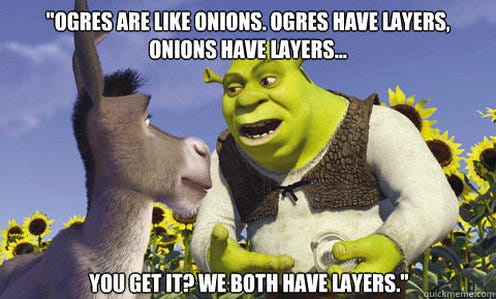In the most recent episode of The Novel Tea, we talked about Piranesi, our final book for Season 3, Other Worlds. I first read the book last year, and I remember feeling ambivalent about the ending (don’t worry, this post is spoiler-free). I couldn’t quite figure out how I felt about it, so I asked Neha to read the book.
Fast-forward to this year, and we decide to do it for the podcast — and I’m so glad we did. Piranesi is a book that requires a reread, or two (or three).
What I initially saw as an ending that could be interpreted as one-dimensional was suddenly blown wide open. There were things I didn’t notice the first time around. And coming to the book in a different year in my life, I found that my interpretation of its many elements changed.
Piranesi has layers. The deeper you go, the more you find.
What does the House represent? Why does the statue of the faun bear a remarkable resemblance to Mr. Tumnus? What is the book saying about academia? And what does the albatross symbolize?
It goes on and on; the questions are never-ending. And we had so much fun digging into some of these ideas on the podcast. Listen to it all here or in the player below:
And for those who, like us, left this book with a feeling of wonder, here are some interesting links and (long!) essays you might enjoy:
(While this post itself has no spoilers, the articles linked below certainly do, so read with caution)
Susanna Clarke’s Fantasy World of Interiors by Laura Miller [The New Yorker]
‘Fifteen years after an illness rendered her largely housebound, the best-selling writer is releasing a novel that feels like a surreal meditation on life in quarantine.’
This article tracks Clarke’s life and career from her first novel, Jonathan Strange and Mr. Norrell, to her friendship with Neil Gaiman, to her love for The Chronicles of Narnia, to her chronic illness. Against the backdrop of her life, and the Covid pandemic, Piranesi comes to life. This was a beautiful profile, exploration of a literary giant, and analysis of great works of fantasy.
Beloved Child of the House: Susanna Clarke’s Piranesi and the Renaissance Memory Palace by Elyse Martin [Reactor]
“It is difficult to pin down a narrative that so purposefully and so patiently explores a maze of literary genres, mirroring how its narrator explores the rooms of the magnificent House in which he dwells, alone except for the sea creatures and birds that live in the seas on the bottom level of his House, and the bones of those who have come before.”
This essay is a deep exploration of the House in Piranesi and a study of the Renaissance memory palaces. With wide-ranging references to Plato, The Tempest, Cicero, and Victor Hugo’s Notre Dame de Paris, this piece provides almost as much food for thought as the book itself.
Piranesi: philosophical meditations on freedom, horror, and the mystical sublime by Helen de Cruz [Medium]
“Is freedom a feature of our own minds, or is it a feature of our external circumstance?”
And finally, this article explores the mythical and spiritual dimensions of Piranesi, discussing the journey of the labyrinth, and the ways in which certain elements of the book can lead us into the horrific and sublime.
What connections did you find in Piranesi?
— Shruti
Up Next
Next on the podcast is our Season 3 Wrap: Other Worlds. In this episode, we’ll talk all about the books we’ve read this season, get into the literary vs. genre fiction debate, and share even more speculative fiction book recommendations!
The episode will be out tomorrow, June 26. Subscribe to The Novel Tea Podcast so you don’t miss it.









This makes me want to revisit Piranesi. It's one of the strangest little novels I've ever read!